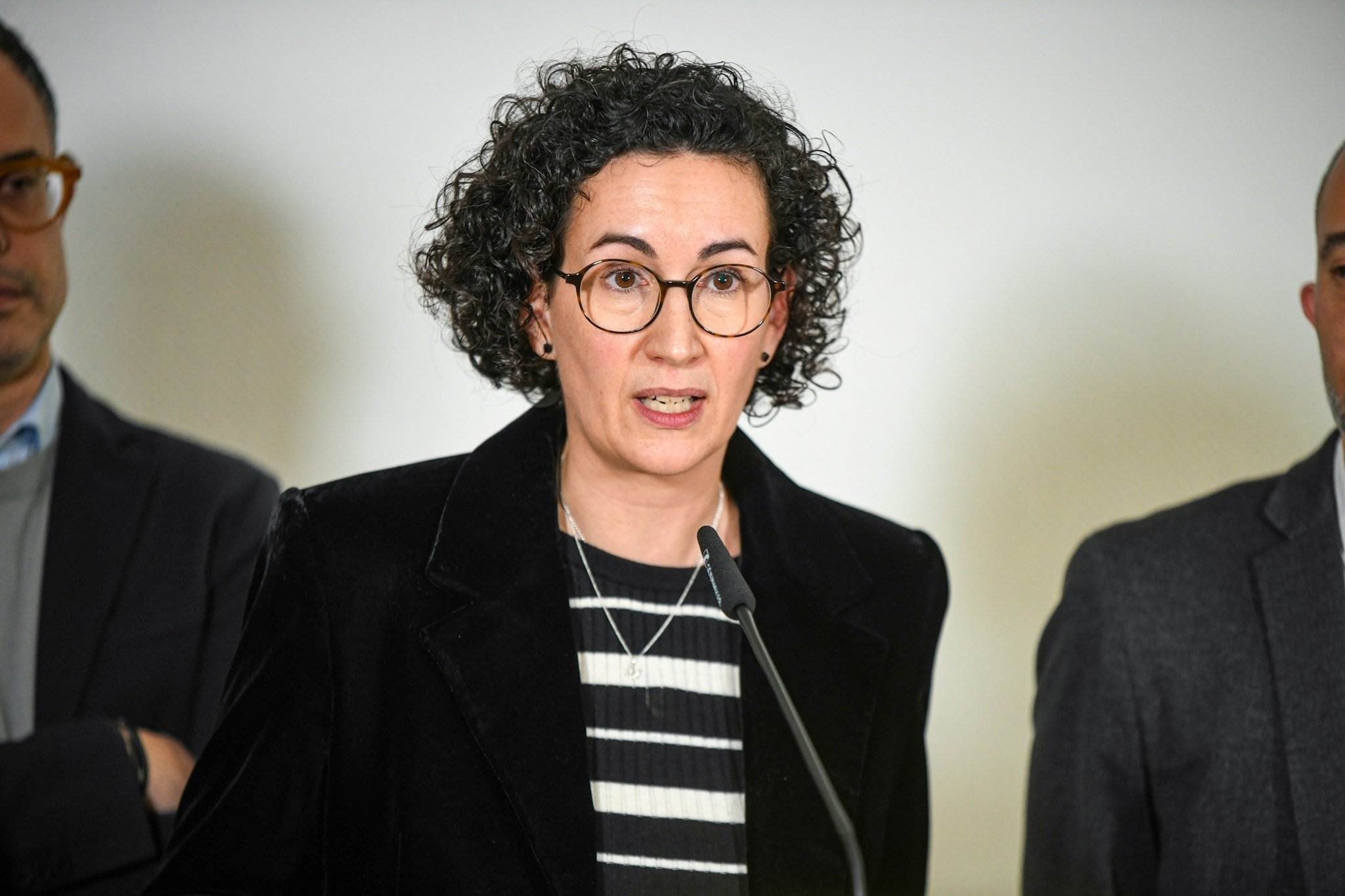The Catalan Republican Left (ERC) responds. The party's general secretary, Marta Rovira, has sent a letter to judge Manuel García-Castellón, in which she asks him to cancel the rogatory letters to the Swiss authorities seeking her location in the country, where she has lived since 2018. The reason? The ERC politican has stated that she will appear in the Democratic Tsunami case, with lawyer Iñigo Iruin, who has asked the National Audience judge to provide him with all the information on this investigation. García-Castellón included Marta Rovira among those being investigated for terrorism in the Tsunami case, in a resolution issued on November 6th, along with 11 other people, also including the Catalan president in exile, Carles Puigdemont.
A substitute judge for García-Castellón, María Tardón, has already responded to Rovira that in the letter she "does not provide the address where she can be located in Switzerland" and asks the public prosecutors for their opinion on the Republican's request that the request for her location be left without effect, according to a submission made on Monday which became known this Tuesday.
Direct request
The Basque lawyer Iñigo Iruin has made a short and direct request to judge García-Castellón. He states that he learned through the media that the judge had elevated Marta Rovira to the category of person under investigation, and that on November 21st she agreed to give the Swiss authorities a request for collaboration that "allows the localization of the person investigated". And with the letter, she formally declares that she will appear in the case, opened in 2019 and until a few months ago investigated in secret, and requests that all the information relevant to the case be communicated to her lawyer, as well as access to all inquiries carried out up till now. In the letter, she also includes power of attorney granted by the politicians to her lawyer.
Regarding the case of the leaders of the Catalan independence process and referendum, Iruin has taken charge of the issue of the return and appearance before the investigating judge, Pablo Llarena, of the former CUP politician, Anna Gabriel, whose disobedience charge over the 2017 referendum was referred by the Supreme Court to the Barcelona courts, and it is still unknown which court will hear it. Iñigo Iruin also handled the case of ERC minister, Meritxell Serret, sentenced to a one-year ban on office-holding by the Catalan High Court (TSJC), a sentence still subject to appeal.
The National Audience judge lifted the secrecy of the Tsunami case in May. At that point it was discovered that Switzerland had refused to provide judicial collaboration in the search for a current bank account, ruling that the Tsunami case was political.
Blocked appeals
The prosecutors at the National Audience presented an appeal against the decision of judge García-Castellón to classify the case as a crime of terrorism, since they maintain that the defendants instigated large demonstrations, such as the one at Barcelona-El Prat airport and another which blocked the AP7 motorway at La Jonquera, the border crossing between Spanish and French territory. In addition, the judge insisted on including the death of a French citizen at the airport in the case, despite the fact that another local court considered that it was not a crime. The latest complaint from the Prosecutor's Office is that it has demanded the judge not block the appeals and raise them to the criminal court of the National Court.
For his part, Gonzalo Boye, lawyer for Josep Lluís Alay and Carles Puigdemont, has ironically and openly criticized that the judge of the National Court is asking NATO for information about the Tsunami protests and warned that public resources are being misappropiated.
Pending recusal
As well, Benet Salellas, lawyer for the businessperson Oriol Soler and the Òmnium director Oleguer Serra, has raised the issues of the recusal of García-Castellón, asserting that he lost his impartiality by giving an opinion on the amnesty. In addition, Salelles denounced that the judge has handled the recusal issue illegally by resolving it himself - and rejecting it - rather than submitting it to a judge of the Audience court or to the judge who provides reinforcement to the court.
It is a busy end to the career of judge García-Castellón, who will cease to practice as a judge between this summer and October, when he turns 72, the legal age limit for practicing as a judge.

